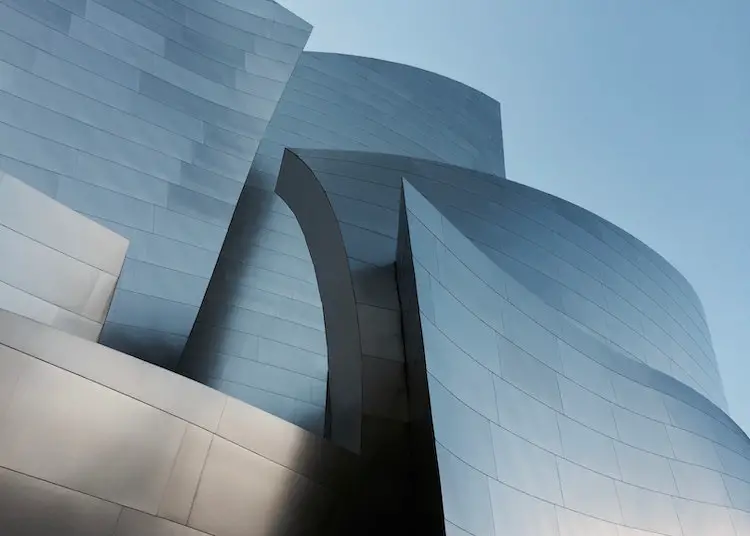As a photographer, architecture offers many different challenges, especially for the new photographer. Technically, buildings can be very demanding to photograph, but the key in solving this and attaining good images is understanding image distortion and finding the best time to capture the building at its most glamorous moment.
Image distortion: When we look at a standard building, we see lines running horizontal and vertical. These lines often appear distorted and will make your image look warped. Image distortion occurs when we choose the wrong point to take our picture or use the wrong equipment.
With most SLR cameras a certain amount of image distortion will occur. Shooting directly in front of the building will limit your options but will limit the amount of distortion in your image.
View cameras are ideal cameras for architectural photography. They minimise distortion and allow you to shoot from any angle. If you are serious about architectural photography, an investment in a View Camera is something to consider.
Your lens may also make your image look distorted. A wide-angle lens will make the front of the building look massive compared to the rear.
If you are photographing a tall building, don’t shoot too near to the base. This will make the base of the building look too large compared to the top. Find a high advantage point, if possible, to take your picture.
Different light brings out different moods in a building. Just as with all other types of photography, studio photography being the exception, the time of day can make a big difference to an image. A building that looks plain and uninteresting during the day can be transformed by lighting at night. Also look out for photos that tell a story such as an office block with a single light on.
Side lighting will create long shadows along the front of the building adding mood to your image.
Back lit buildings are extremely difficult to photograph and are only effective as a photograph when captured as a silhouette.
Most buildings are best captured at night and if possible shoot when there is detail left in the sky. You don’t need the most costly camera gear on the market to get great building pictures at night – bring plenty of film and a good sturdy tripod.
Architectural photography doesn’t finish when the outside of the building is finished. Images of the interior of buildings are also in demand with many agencies. Great care should be taken when photographing the interior as elements within the interior may be distracting to the final image result. Remove any object that may interfere with your image.
Industrial photography is also as demanding and rewarding as any other type of photography. Take extra care when approaching large structures, use standard photography techniques and use the light creatively to add humour and mood.
Architecture photography is very demanding, but the rewards are great for any person that masters the technique. But like all types of photography – practice makes perfect.
Source by TJ Tierney
